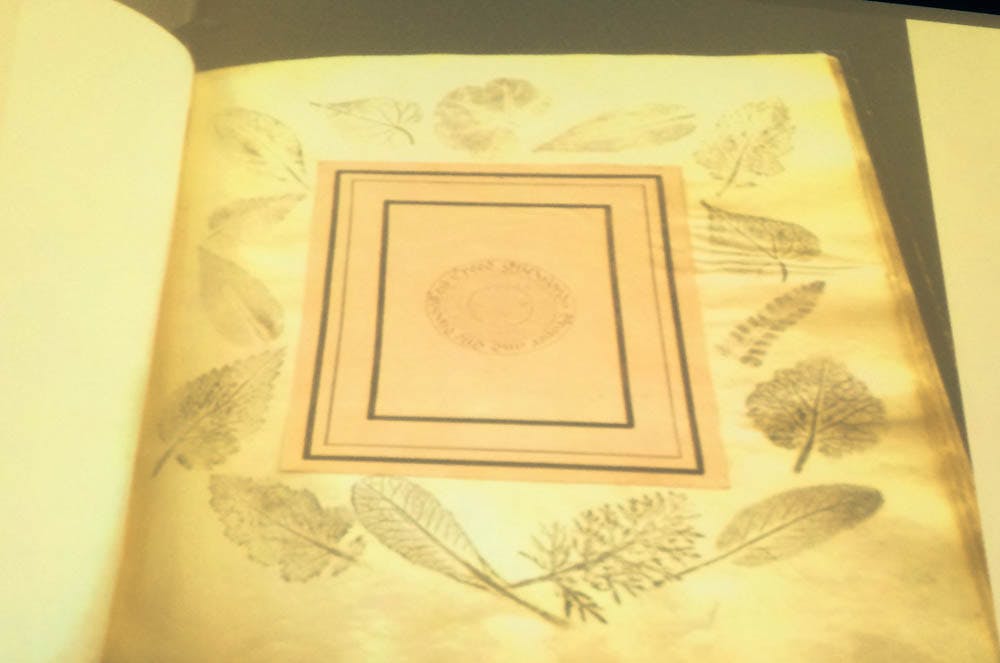Friday afternoon, University professors, graduate students and librarians joined Harvard Professor of Literature Deidre Lynch in Pembroke Hall for a workshop entitled “Paper Slips: Album, Archiving, Accident.” The event, which was hosted by the Cogut Institute for the Humanities, followed Lynch’s Thursday night lecture on female literary history. The intimate, registration-only seminar concerned the archiving process documented throughout the Romantic period and their implications for contemporary digitized archives.
As a contributor to the prominent journal “Studies in Romanticism” and an editor of the Romantic Period volume of the acclaimed “Norton Anthology of English Literature,” Lynch spoke with authority on the literary movement. She detailed the imperfect nature of Romantic archives, contending that the albums and scrapbooks of the era marked a peculiar “disassemblage” of the period’s culture. These hand-written and homemade archives comprised not only mistranscribed copies of the renowned works of contemporary poets like John Keats and Lord Byron, but also various anonymous ephemera including newspaper poems and crude drawings that would be marked inconsequential by modern archivists concerned with preserving an accurate and complete canon.
Through their dual inclusion of nonessential documents and faulty transcriptions of notable poets, Romantic archives maintained a “project of preservation that was idiosyncratic … and possibly polemical.” Lynch further underscored the unfixed qualities of these miscellaneous Romantic archives and common books by alluding to the fly-away scraps that constituted them — a flimsy architecture prone to damage that defies any notion of the archives as definite, enduring entities.
“We should view these (archives) as accident-prone things rather than objects of fixity,” Lynch said. “Romanticism hinges on the fragment.”
Attendees were instructed to read a pre-circulated collection of papers by Lynch and other academics before arriving to the seminar. The papers expounded upon the nature of Romantic archives detailed in the seminar, while also drawing on the work of semioticians like Jacques Derrida to examine the Romantic “disassemblages” through the lens of media theory.
Lynch touched on these aspects throughout the seminar, contrasting Romantic archival practices with those present today. Modern archival tools’ capacity for neatly ordaining texts into named and set categories runs counter to Romantic archives’ distinctive instability, Lynch argued, necessarily “transvaluing” archives’ status as “temporary assemblages existing in time.”
Lynch “found a space at the intersection of literary studies and media theory that’s still yet to be named,” said attendee Carlos Pittella, a postdoctoral research associate in the Portuguese and Brazilian studies department. “It offers so many sides for emerging fields in the digital humanities.”
“The seminar was very interesting,” commented attendee Jiawei Tang, a visiting English PhD student from China’s Peking University. “It had me think a lot about the context of the albums and clippings books.”





